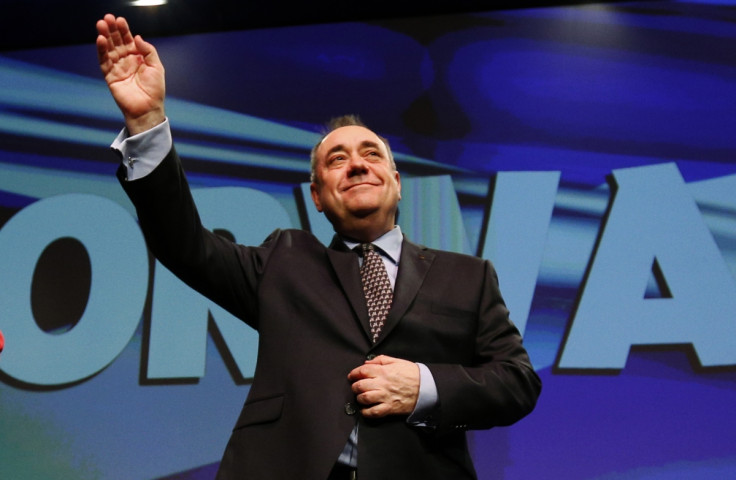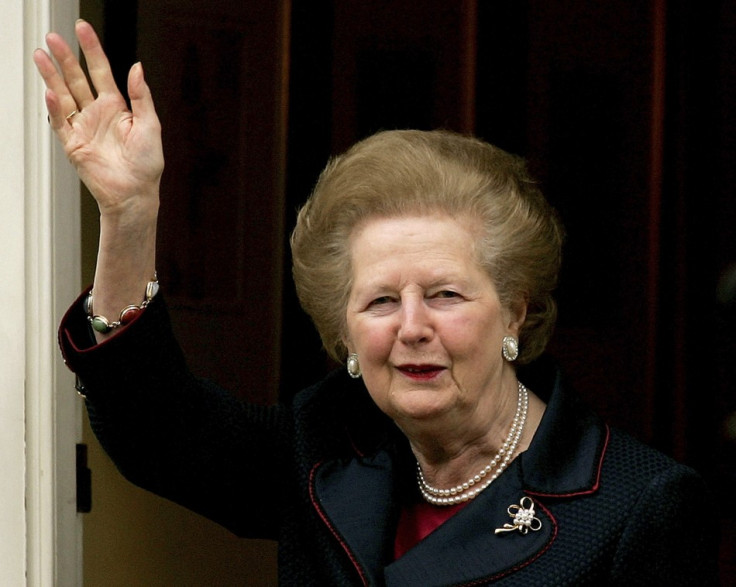Scottish Independence: No Matter How Scotland Votes, Alex Salmond Will be the Winner

Whatever Scotland decides on 18 September, first minister and SNP leader Alex Salmond has already won. And Westminster's "establishment" parties only have themselves to blame.
Every time those politicians have attempted to head off the nationalists or outsmart Salmond, they have botched it or been wrong-footed themselves, and only succeeded in advancing his cause.
The attempt to fly the Saltire over Downing Street only to see the rope snap and the flag collapse provided the perfect symbol.
Now, just a week before the historic referendum, Salmond is guaranteed to win either full independence or what many believe was his secret preference anyway of Devo Max: the option David Cameron insisted should not be on the ballot paper but has now promised Scotland anyway as a consolation prize.
The prime minister, meanwhile, has been left pleading with the Scots that the vote isn't about him and his party, saying: "People feel it's a bit like a general election. If you're fed up with the 'effing Tories you can give them a kick."
But the roots of this constitutional crisis can be tracked back at least to "'effing Tory" prime minister Margaret Thatcher's time (let's not go back 300 years). Most famously, her misguided and disastrous poll tax policy was foisted on Scotland in 1989 to test it out before it was implemented in the rest of the UK.

Combined with her social and economic policies blamed for destroying jobs, industries and social housing, it killed off the Tory party as a political force in Scotland and left a legacy of resentment and anger that has not faded with time.
Scotland was always Labour territory but with the elimination of the Tories, Labour became the establishment and, ultimately, the more left-wing SNP the major opposition.
Tony Blair's devolution in 1998 (it was actually his predecessor John Smith's legacy) was seen as a radical and popular policy whose main aim was to satisfy demands of voters toying with, but wary of, independence.
Labour's Donald Dewar and George Robertson designed a PR voting system for the parliament specifically designed to prevent the SNP ever winning a majority.
But, with Labour now the establishment and the nationalists the opposition, the inevitable happened. As a senior SNP adviser remarked at the time: "Sooner or later, oppositions always win."
Finally it was Cameron's turn to try and halt the growing demands for independence and kill off Salmond's dream for generations.
In what was seen as an attempt to call the nationalists' bluff, Cameron "gave" Scotland an early referendum but then, in what was supposed to be the master stroke, insisted there could be only one question on the ballot paper, independence or nothing.
The aim was to force the Scots to decide whether to back the more dramatic and, Westminster hoped, frightening option of full independence or call the whole thing off. It seemed a perfectly good plan, at the time.
Even then many believed Salmond secretly preferred the "best-of-both-worlds" option as it avoided all the troublesome elements of independence such as the currency, EU membership and the head of state.
But it has gone horribly wrong and the referendum is now no longer about full independence or nothing, it is full independence or Devo Max. Game set and match to Salmond, then.
There are some people [in Scotland] who haven't focused and realised the full implications.
And still the establishment politicians are getting it wrong. In an 11<sup>th hour panic at the prospect of the end of the United Kingdom, the Westminster Three - or, as Salmond brands them, the "Three Amigos" - have put all other politics on hold in their bid to sway the vote away from independence.
As Cameron virtually got on his knees to plead with the Scots not to break away, writing in the Daily Mail: "Let no one in Scotland be in any doubt: we desperately want you to stay; we do not want this family of nations to be ripped apart."
His sweary outburst in Edinburgh about the "'effing Tories" was also clearly part of a speech aimed at proving just how passionately he felt about the issue.
But back in London, his predecessor Sir John Major was striking a very different note saying, in effect, that many Scots had no idea what they were voting for.
"There are some people who haven't focused and realised the full implications," he said.
You could hear the grinding of Scottish teeth in Edinburgh and Glasgow all the way down in London, a 350-mile journey that suddenly seems to have got very much longer.
© Copyright IBTimes 2025. All rights reserved.





















